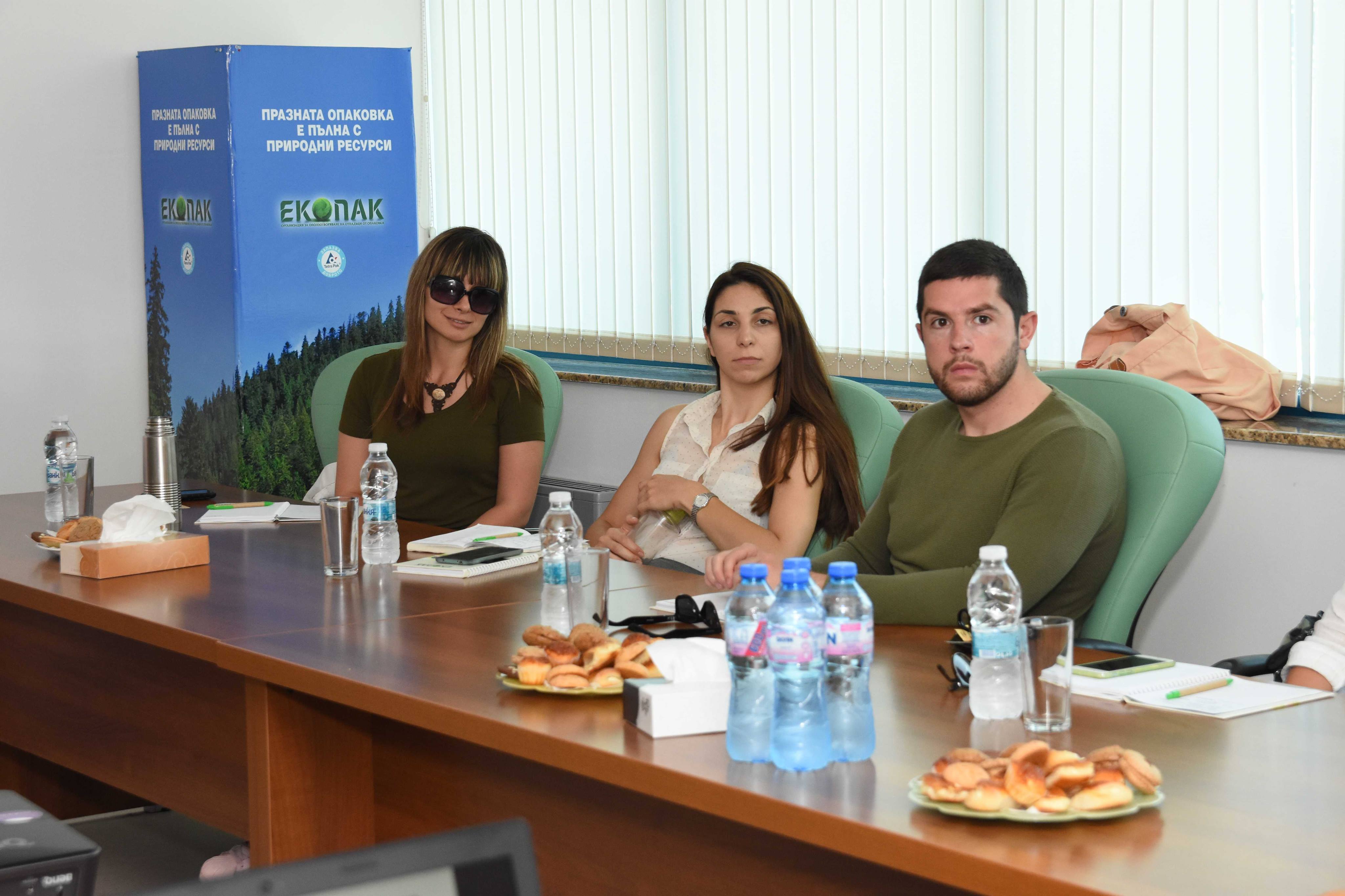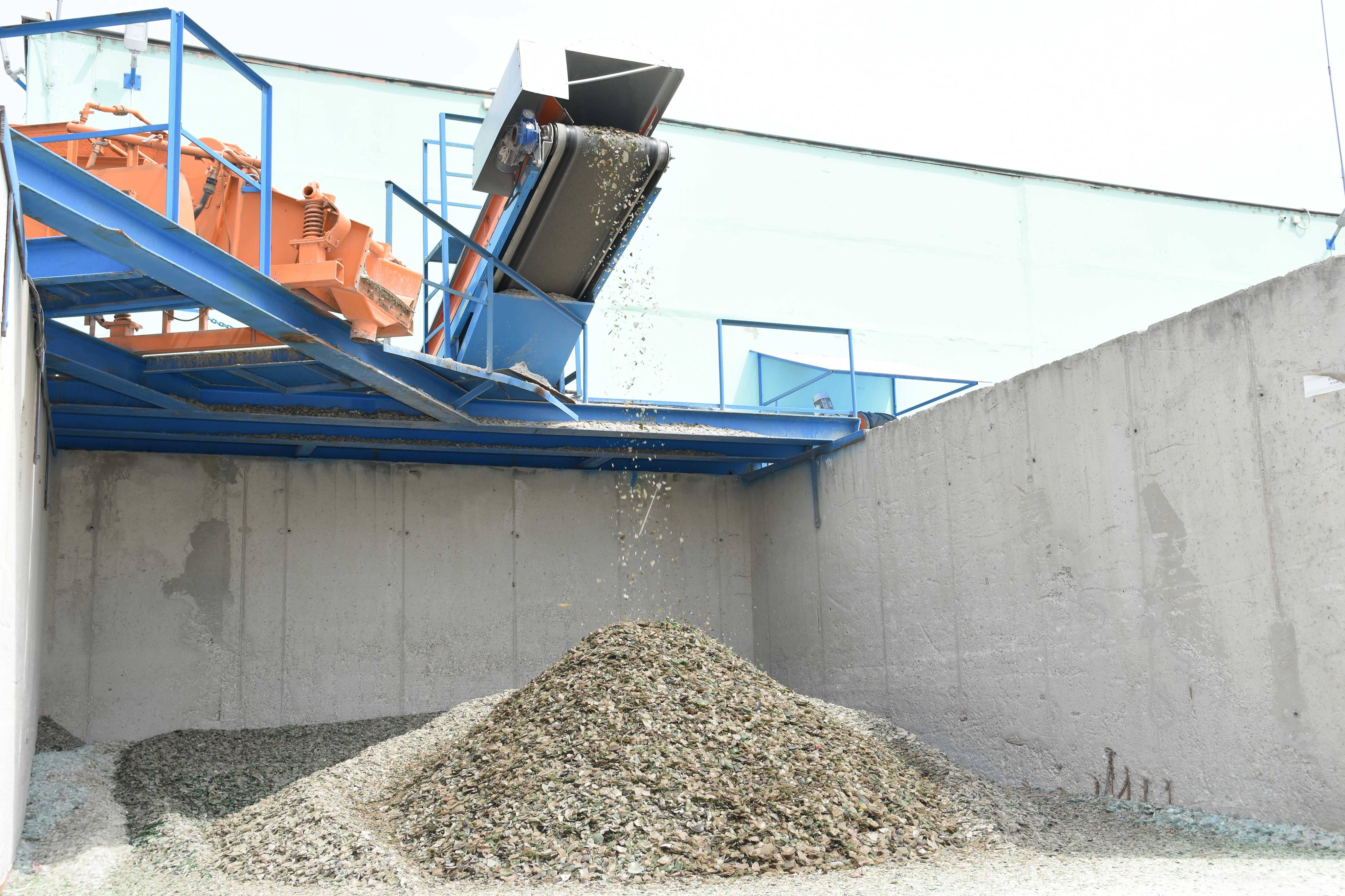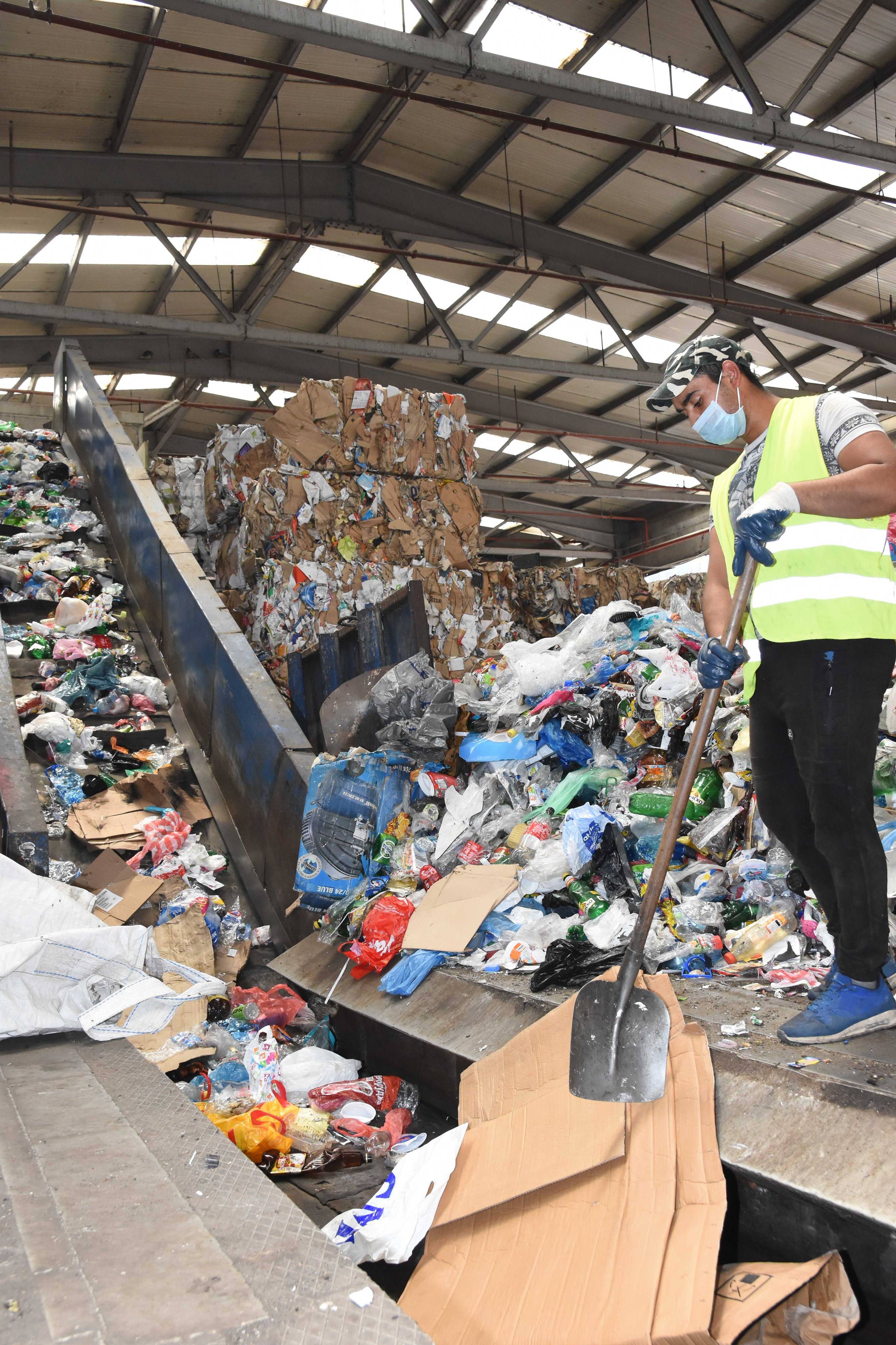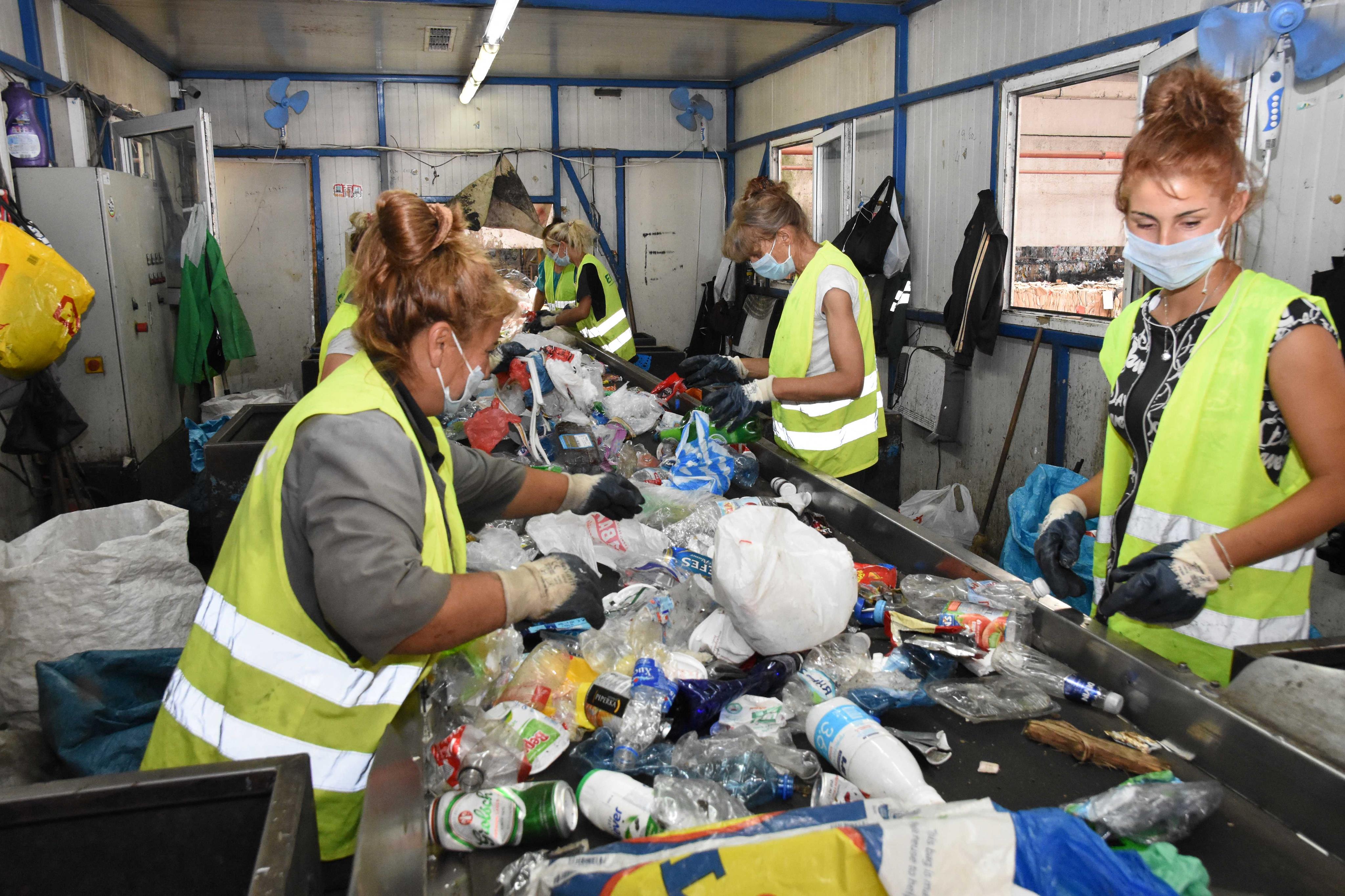People often ask me what is the point of recycling. I support it although I think that it’s far from enough for saving our planet. The key to a greener planet, cleaner air and healthier people is actually consuming less which will directly decrease our trash.
But just like everything else this is also a process and since recycling is a step in the right direction, I will tell you more about how it works in Bulgaria.
How did it all start?
Last Friday (8th June 2018) I was invited to a meeting with the management team of Ekopack, Bulgaria to discuss how recycling in Bulgaria works. I am happy to note that the company is trying to educate more and more people about the benefits of recycling using different campaigns such as “Old paper for a new book” and “Books for trash”.

What did we find out?
Contrary to my expectations, Ekopack is not funded by the state but is a private organisation managing the packaging waste of manufacturers and municipalities.They highlighted the fact that they’re responsible only for managing the packaging waste (not the food one, the building one, etc.) Despite having contracts with a lot of the municipalities in Bulgaria (83), they shared that they are not covering the whole country.
What can we, the citizens do?
When I asked them why the blue container (the one collecting paper) is a rare sight in smaller towns and villages, Ekopack explained that it’s the local mayor’s responsibility to sign a contract with a company managing the separate collection of trash. Mayors of villages with the population of below 5,000 people also have the right to decide whether different recycling containers are “necessary” in the villages they’re working at…But I appeal to you to do our best not to allow them to make use of this right which will cost us our health, clean air, necessary space (which is now used as a landfill) and the education of our children. If you don’t have recycling containers in your town or village, write to the local municipality, don’t let them contaminate at your expense.
Why am I appealing about this?
After my visit to the village of Vedrare, Karlovo, Bulgaria (you can read more about it here), I was shocked to find out that there isn’t a recycling container near the local school. The students shared that there isn’t a single recycling container in the whole village!!! The village’s population is 1,218 people. According to Darik News 2017, the average person generates over 1 kg of trash per day. In Vedrare’s case this will be over 1,218 kg of trash going to landfill each day. If we continue like this we’ll need way more than 1 landfill, we’ll need a few planets to accommodate our trash and no, the consumers aren’t the only ones to blame in this case…the local municipality is just as guilty for not facilitating the recycling process.
But…let’s go back to the original question…
What happens to our trash?
If it’s not separated and put in the correct recycling container, it ends up directly at the landfill where it uses valuable space and contaminates the soil for at least 100 years, depending on the material it’s been made of. For example, plastic cutlery takes 400 years to decompose, a plastic bottle 500 and a period pad 800 years. Our trash lives more than us…can you imagine
If you are one of the “lucky ones” and you have recycling containers at your area, the picture is a bit more optimistic…
What kind of trash is recycled?
I knew that from before but I was also very happy to see it with my own eyes-glass is recycled 100%. Regardless whether it’s a whole bottle, jar or small pieces. Contrary to my expectations Ekopack collects the trash separately (a rare practice in Bulgaria) making sure that a separate truck collects the trash from each container and there is no danger for the workers when collecting glass. Ekopack also confirmed that if you have broken glass pieces, you can throw them directly into the glass container. In fact, they have a machine that breaks the glass into small pieces. When asked what’s the best way to recycle a jar, they answered that we have to throw the jar itself into the glass container and the cap into the yellow one (for plastic and metal).

What happens to the plastic trash then?
The picture is far from pretty over there, despite Ekopak’s statement that they recycle more than 60% of the packaging trash of the companies they’re working with here in Bulgaria such as Coca Cola and Danone. How does the actual recycling happen? Ekopak’s trucks are collecting the plastic and metal trash and take it to the collection unit. Over there the workers separate the trash piece by piece from the big piles to push it with brooms onto the processing line where there is a team of ladies wearing glasses and masks and separating the different types of plastic…When I asked what happens to the plastic which cannot be recyled Ekopak advised to throw it into the recycling container for plastic because this way the workers will separate it and then burn it. Otherwise, if thrown at the general container, it will end up directly at landfill. In my opinion we should concentrate on reducing the use of plastic, rather than wondering what to do with the different types of it but well…


Where is the paper trash in this picture?
Ekopack states that they collect the trash separately but it still puzzles me why the plastic and the paper trash were grouped together at the collection unit. When I asked what’s the best way to deposit used paper, they advised to throw it at the recycling container, rather than composting it. It was very important for me to find out what’s the reason for the lack of the blue container collecting paper trash in Plovdiv. Ekopack said that the municipalities of Plovdiv and Sofia have decided to sign contracts with more than one recycling management company so if you live in a neighbourhood which doesn’t have a contract with Ekopack…you are not going to have a blue container (since Ekopack is the only company which offers the blue container)
How does Ekopack help the citizens?
If you are in Bulgaria and you spot an Ekopack container turned upside down or a damaged one or a container on fire, you can call them on 0800 1 5253, completely free.
I hope that you’ve found this article useful. If you have any questions, I am always here.
Do you recycle? If not, what’s stopping you, let me know in the comments below
Wishing you a super day!
Best,
Vera

